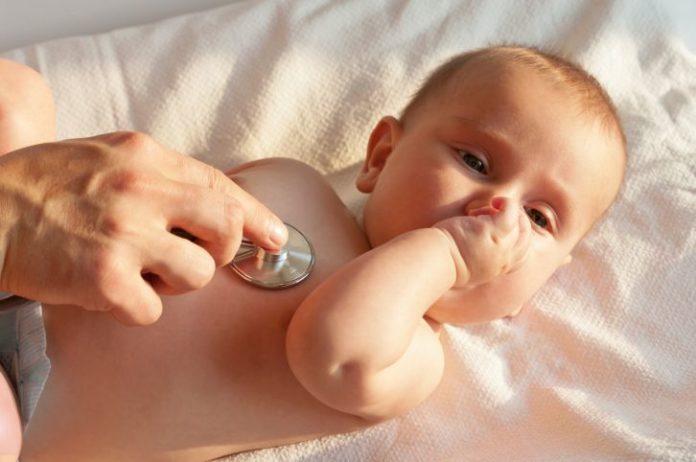Infants with severe lower respiratory tract infection caused by respiratory syncytial virus (RSV) may have a dysfunctional innate immune response that relates to the severity of their disease. These are the findings from a Nationwide Children’s Hospital study appearing in a recent issue of the Journal of Infectious Diseases.
RSV is the leading cause of lower respiratory tract infection in young children worldwide. The majority of children hospitalized with this condition are previously healthy with no known risk factors for serious disease. Of these infants, up to 20 percent will develop a disease severe enough to require admission to the pediatric intensive care unit (PICU).
It’s suggested that viral factors and the host immune response both contribute to the severity of RSV disease. A child’s functional innate immune response is increasingly being recognized as contributing to disease severity, but few studies have examined this phenomenon.
“For a long time we thought that children with severe RSV disease had higher concentrations of innate immunity cytokines, but it seems to be the opposite,” said the study’s senior author Asuncion Mejias, MD, PhD physician scientist in Infectious Diseases at Nationwide Children’s Hospital. “When we stimulate the blood of these infants the production of innate immunity cytokines is severely impaired, and more importantly, this weakened response correlates with the more severe forms of the disease.”
To investigate the relationship between innate immunity and RSV disease severity, Dr. Mejias and Octavio Ramilo, MD chief of Infectious Diseases at Nationwide Children’s in collaboration with Cesar Mella, MD, and Mark Hall, MD from Critical Care at Nationwide Children’s, sought to determine whether patients with bronchiolitis admitted to the PICU had decreased whole blood functional innate immune responses. They also examined the relationships between innate immune dysfunction and disease outcomes.
The team evaluated 66 previously-healthy children less than two years old who were hospitalized with a first episode of RSV bronchiolitis during the 2010 – 2011 respiratory season. A nasal wash sample and a blood sample were obtained from each patient within 24 hours of admission to confirm RSV infection, and to measure cytokine concentrations before and after LPS stimulation. The team also enrolled healthy infants for control comparison.
They found that critically ill children with RSV admitted to the PICU had a significantly lower production capacity of innate cytokines compared with healthy controls and infants with less severe RSV bronchiolitis hospitalized in the Infectious Diseases unit.
“Whether children who develop severe RSV disease are born with an already impaired immune response, and RSV just uncovers their abnormal immune system will require further studies,” says Dr. Mejias, who is also a faculty member at The Ohio State University (OSU) College of Medicine. “Our study clearly suggests the presence of an inadequate, rather than excessive, functional innate immune response in children with RSV. This inadequate functional innate immune response is directly associated with the severity of the disease.”
Dr. Hall, also with OSU College of Medicine, said that immune monitoring of RSV patients at the time of hospitalization could have important clinical implications.
“Our data suggest that children with the most severe forms of RSV disease may already be immunosuppressed when we meet them in the ICU, raising the possibility of worsening this immunosuppression with the addition of commonly prescribed corticosteroids used to blunt the pro-inflammatory response to RSV,” said Dr. Hall.
Prospective immune monitoring may be helpful to identify children with bronchiolitis at high-risk for severe disease.
The findings also suggest the potential for the use of immune stimulant drugs that have been used with some success in reversing innate immune suppression in critically ill adults and children.
Source: Nationwide Children’s











